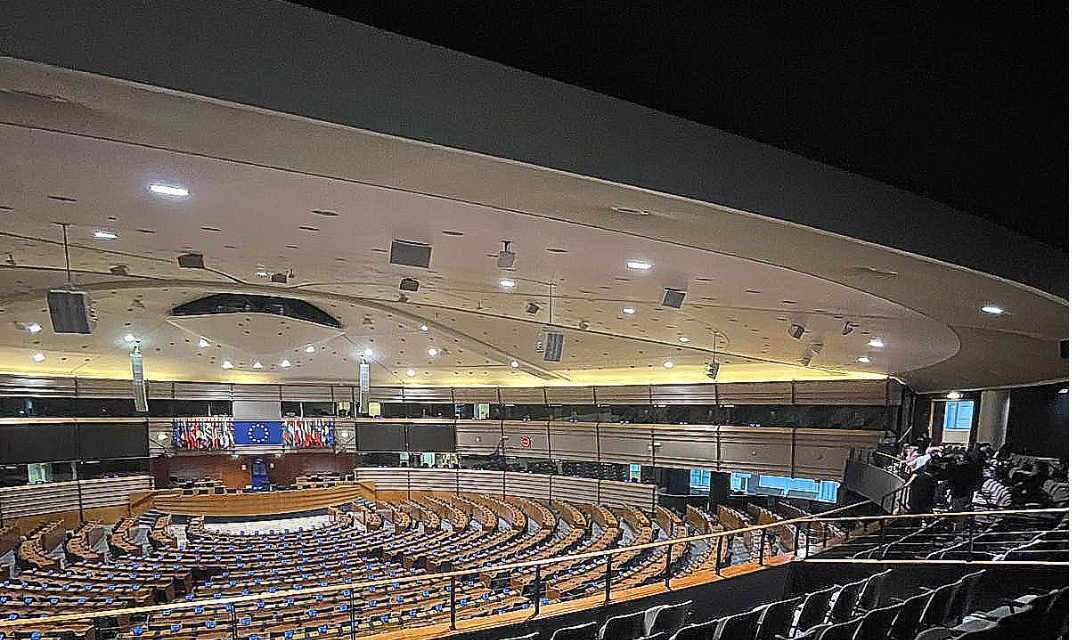The recent U.S. presidential election has brought about a wave of anticipation and concern across Europe, particularly within the European Union, where leaders and policymakers watch closely to see how transatlantic relations may shift. With the EU increasingly impacted by American foreign policy decisions, the outcome of the U.S. election is seen as a potential catalyst for significant changes within Europe, especially in areas such as defense, climate policy, and economic relations.
A Turning Point for Defense and Autonomy
One major theme emerging from conversations in the European Parliament is the concern over defense policy. Beppe, who works as a press officer for a political party in the EU, highlighted that a shift in U.S. foreign policy could push the EU toward greater autonomy in defense. If the U.S. reduces its commitments to European security, particularly under a leadership style similar to the previous Trump administration, Beppe noted that “there’s going to be a lot of talk about actually making the EU stronger and more independent in terms of defense.” This shift would represent a notable pivot, encouraging the EU to act as a more unified entity on the global stage, potentially accelerating efforts to establish a pan-European defense strategy.
Beppe also mentioned that the need for an autonomous defense is not just a desire but, for some EU officials, a necessary step towards reducing dependency on unpredictable allies. “Some EU officials were even hoping for a Trump win, not out of admiration, but because they believed it might shock the EU into becoming more unified,” he explained. This perspective underscores an underlying push within the EU to solidify its international stance independently, regardless of American leadership changes.
Climate Policy: Aligning or Diverging Agendas
The environmental stakes of the U.S. election are another area of heightened interest. Ceci, who works in the European Parliamentary Research Service (EPRS), noted that young Europeans are particularly focused on the U.S.’s commitment to global climate agreements like the Paris Accord. The EU has prioritized climate action under the Green Deal, and the stance of the next U.S. administration could either support or hinder these efforts. Beppe, who focuses on climate within the EPRS, echoed this concern, stating that if the U.S. were to pull back from its climate commitments, “the EU might take a more prominent role in climate negotiations,” becoming a global leader where the U.S. potentially falters.
The potential for a lack of alignment on climate issues raises questions about the EU’s ability to achieve its environmental goals independently. European youth, as Ceci noted, follow these developments closely, as they recognize that U.S. actions on emissions and environmental policies have global consequences. “Whatever the U.S. does, it will impact us all,” Ceci said, emphasizing the widespread concern for climate-related repercussions.
Trade Wars and Economic Tensions
Economic relations between the U.S. and EU have been marked by ongoing trade tensions, a factor that both Beppe and Ceci highlighted. Beppe explained that unresolved trade disputes under the Biden administration—particularly in sectors like steel—could worsen if policies shift. With the potential reintroduction of tariffs, the EU may be forced to respond with its own measures, affecting key industries on both sides of the Atlantic. According to Beppe, this may not only impact trade but could also affect EU competitiveness and climate goals, especially as the EU’s Emissions Trading System (ETS) increasingly considers external companies through mechanisms like the Carbon Border Adjustment Mechanism (CBAM).
The Role of Media in Shaping Perceptions
Media coverage plays a vital role in how the EU public perceives U.S. elections. Ceci mentioned that European media extensively covered the U.S. elections, with outlets like Politico running live updates to inform EU citizens. According to Ceci, this high level of media attention reflects how invested Europeans are in the U.S. electoral outcomes, with European youth often relying on social media platforms to stay informed. However, Ceci warned that social media algorithms might not always provide a balanced perspective, influencing European youth’s views on American politics through selective content exposure.
The Path Forward for the EU
As the dust settles after the U.S. election, the EU prepares for multiple scenarios. Beppe noted that unlike in 2016, when the EU was “blindsided” by Trump’s unexpected victory, EU officials are now preparing for a range of potential outcomes, including the return of more challenging U.S.-EU relations. While current ties remain solid, especially regarding defense cooperation in Ukraine, officials acknowledge the possibility of navigating a more complex relationship with the U.S.




